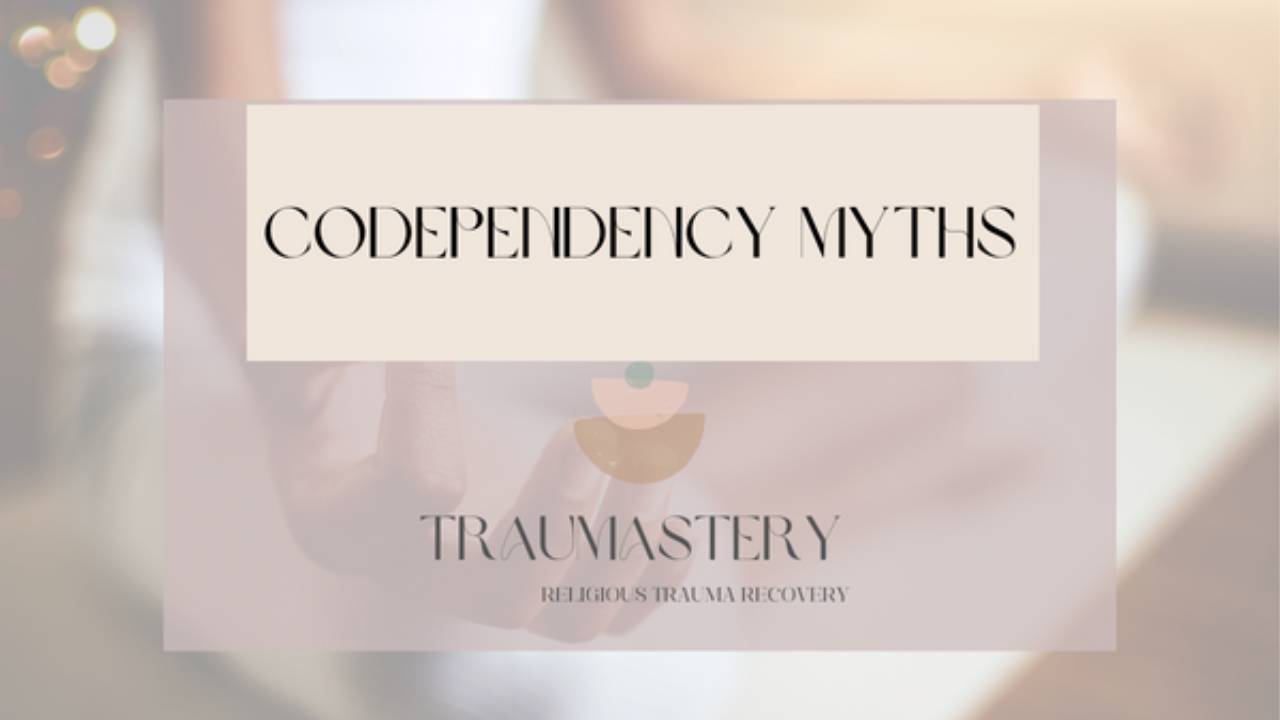Myths About Codependency

When someone first learns about the idea of codependency, they can fall in to a panic around collecting information about how to stop these exhausting and toxic dynamics. But, for all the research that is out there, you might come across some myths that aren’t actually true about codependency. I’m going to clear those up here.
Myth 1: All codependency starts with a traumatic childhood.
Truth: It's time we clarified one really important thing in the codependency world: Trauma is not the genesis of ALL codependency. It's definitely part of some codependency, but that's an important distinction. Why is it important?
➕ Because someone scrolling right now will go right past some helpful information about their struggle with codependency, simply because they don't identify their childhood or relationships as traumatic.
➕ Intensity, chaos and unpredictability create codependent cycles. Sometimes those are traumatic and sometimes they are just stressful. Trauma and stress are not the same thing.
➕ So, if we dropped the "trauma” label for just a second, does codependency resonate with you? Does it describe some of your problematic relational dynamics?
Myth 2: All codependent folks end up with narcissistic partners.
Truth: Not all codependent folks end up in relationships with narcissists. I mean, some definitely do, but it's not a hard and fast rule and it's definitely something that needs to be clarified in the healing conversation.
➕ Some codependent relationships have one people-pleasing, hard-worker coupled up with a narcissist. It makes sense, right? Someone needs their needs met and a codependent person is waiting in the wings to do just that.
➕ But, some codependent relationships have other types of partnerships and those are worth evaluating too.
➕ The hope is that you find some helpful pieces of information that can inform your next steps. Sometimes, that's embracing labels and sometimes that's taking only the parts that are helpful to you.
Myth 3: All codependent folks are pushovers or weak.
Truth: Codependent folks are hard-working go-getters. They are not weak at all. They are simply in a relational dynamic, born of an intense or chaotic childhood that forced them to try to keep things calm and manageable in their lives. This means they are the first people to jump in and fix a problem, come up with new ideas for addressing an issue and they are usually working themselves to the bone to make life easier for others.
Those in codependency are also not pushovers. They do have a hard time with boundaries and perhaps this earns them the unhelpful label of being pushovers. But truly they are peacekeepers, hoping to make life easier and less chaotic for everyone.
Survivors: If you feel like you might not fully understand codependency but you want to have better relationships, I'd suggest our codependency workbook, Healing Codependency. It's a 10-week, step-by-step process of looking at your codependent patterns and finding realistic ways to manage your people-pleasing impulses. If you are ready to take your copendency journey to the next level, let me introduce you to our full-bodied course, From Chaos to Connected. We'll walk you through how codependency starts, how you can understand your behaviors in relationships, and creating a realistic plan for recovery moving forward.


